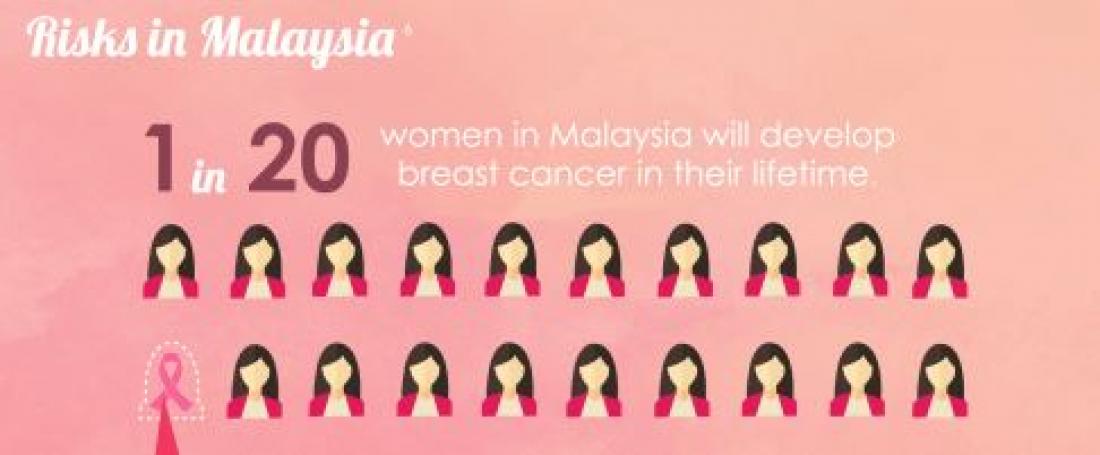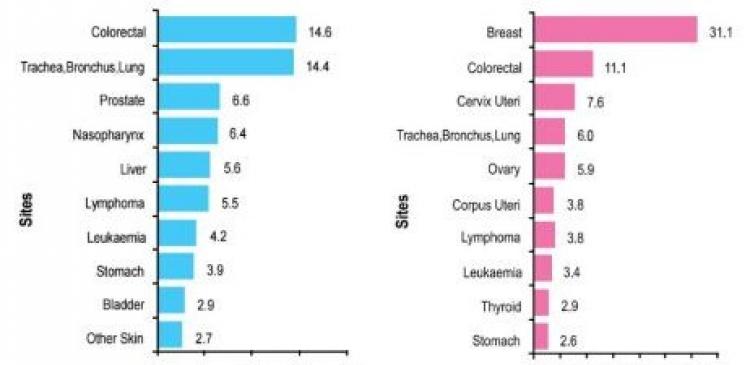Studies have found that 1 in 20 women in Malaysia will develop breast cancer once in their lifetime.
A major study on breast cancer involving thousands of Malaysian women recently has identified the three protective factors that will reduce the risk of developing breast cancer: breastfeeding, regular physical activity and soy intake.
Breast cancer is the most common cancer among Malaysian women. The number of breast cancer is rising rapidly as people are prone to a more Westernized diet high in fat and sugar, living a sedentary lifestyle and with smaller family size.
The study, which is the largest ever conducted in Malaysia, included 3,683 breast cancer cases and 3,980 healthy women from University of Malaya Medical Centre (UMMC) and Subang Jaya Medical Centre (SJMC). Data were from the Malaysian Breast Cancer (MyBrCA) genetic study and the Malaysian Mammographic Density (MyMammo) study which examine genetics, lifestyle, hormonal, reproductive and mammographic factors and their association with the risk of developing breast cancer.
Professor Dato’ Yip Cheng Har, Emeritus Professor from University of Malaya and one of the lead clinicians of this study stated that the findings are significant because they add to an understanding of the hormonal, reproductive and lifestyle factors associated with breast cancer among Malaysian women. Most of the breast cancer studies are conducted among Europeans and few have examined Malaysian women. This will help in pushing forward public awareness campaign to reduce breast cancer incidence in Malaysia.
Besides that, the study shows that women who breastfeed for more than 12 months are 70% less likely to develop breast cancer.
Data related to breast cancer has been collected since 1993 and among women who attended the opportunistic mammogram since 2015 in UMMC.
Professor Nur Aishah Mohd Taib, another lead clinician from University of Malaya added that the large-scale study enables researchers to capture the landscape of breast cancer in Malaysia Women who are physically active are known to have a reduced risk of non-communicable diseases such as diabetes, cardiovascular disease and cancers.
The results from the study confirm that women who are physically active have about 30 - 60% reduced risk of developing breast cancer.
Although the number of women who reported the intake of soy is relatively low in this study, the results show that consuming at least a cup of soy milk or a serving of soy products once a week is associated with about 80% and 60% reduced risk of developing breast cancer, respectively.
In order to examine the effect of soy and breast cancer more extensively, Cancer Research Malaysia partnered with the University of Nottingham Malaysia, SJMC and University of Malaya to determine whether women who start to consume soy in their 40s and 50s can experience reduced breast cancer risk.
Professor Teo Soo Hwang, Chief Executive Officer of Cancer Research Malaysia and the lead investigator on the study, hoped to continue to make important contributions in the prevention and early detection of breast cancer in Malaysia
For more information, kindly contact:
Prof. Dr. Nur Aishah Binti Mohd Taib Department of Surgery, Faculty of Medicine, University of Malaya, Kuala Lumpur, Malaysia. [email protected]




